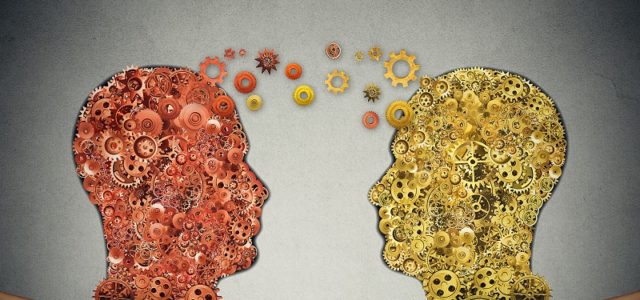Challenge reminds us that there are many ways in which we can view the world. It reminds us that there are other perspectives out there rather than just our own. If we use challenges from other people, we can increase the likelihood of our plans being successful. This is why wargaming plans and stress-testing them is so valuable. Feedback is essential for personal development and growth.
It helps to expose you to what you are not good at allowing you to take steps for improvement. When I was at Urenco, one of the people I worked for suggested I pick a few members on the site and ask them for some feedback.
This was one of the most painful experiences I’ve ever had because I was exposed to a view that I was previously blind to.
Although much of it was positive, my ego took a huge beating by the ‘points for improvement’.
I have reflected on why this is the case and this is what I have learnt.
Don’t confuse personality with performance
The reason that feedback and challenge are difficult to receive is because the ego gets in the way. High performers have a tendency to throw everything they have into tasks and their work. They’ve learnt over time that investing a part of themselves in their work, taking pride in a positive outcome generally leads to them doing well.
Think about how you behaved at school. Chances are you worked hard on projects, pushing yourself to perform.
You do well. And so this behaviour and mindset is reinforced and encouraged by your parents and teachers. You keep doing it. It becomes an approach, a model for how you behave that leads you to achieve your goals.
This gradually leads you to blend your ego and sense of self-worth with your work.
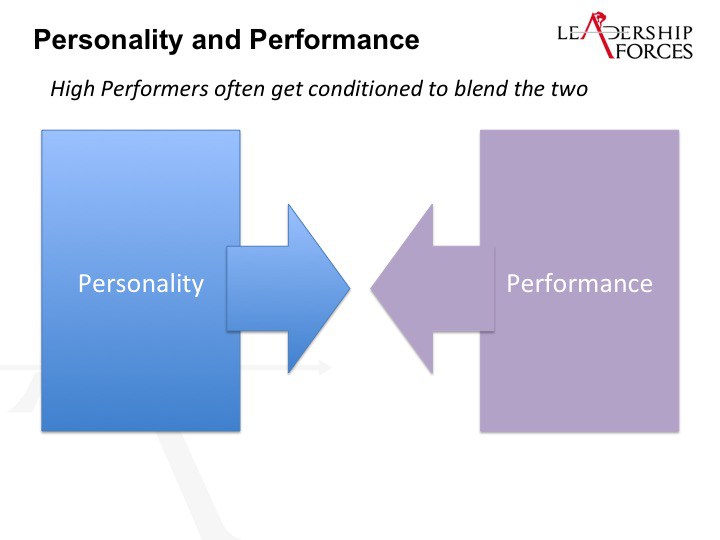
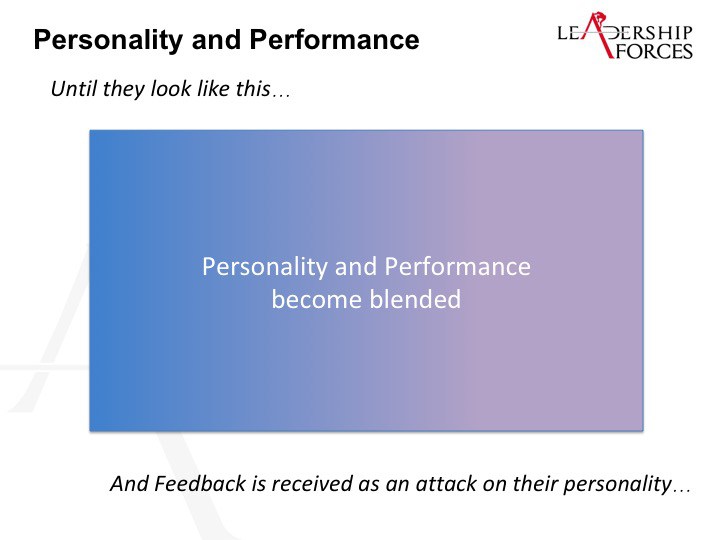
The problem with this is that it becomes difficult to separate the two.
Because you have wrapped your personality up with your performance, you take any criticism of your work as a personal attack.
In The Chimp Paradox by Dr Steve Peters he explains the concept of the tri-partite brain using a brilliant metaphor.
In short, all information you receive goes through ‘the chimp’ which checks that you are not being faced with a threat. This part of the brain has kept your ancestors safe and alive long enough to pass on their genes. It is why you are here today.
Once information has been processed by the chimp it goes to the ‘human brain’ or ‘computer brain’. The ‘human’ is the part of the brain that is active now as you read this. It is logical and allows you to operate in society. The ‘computer’ is the third part and it deals with a lot of your habits and trained competencies.
Feedback is received by the chimp brain first which often misinterprets it as a form of attack. This generates an emotional reaction which sends the chimp into overdrive.
We all have the ‘critical judge’ inside us. That voice that tells you that you’re not good enough, that you’re going to get found out. When receiving feedback, this guy is awake and shouting in your ear. He’s saying,
‘this is it, you’re not as good as you thought, you’re getting found out! You’re going to get fired and let your family down! Everyone will hate you!!’
This is ‘the chimp’ in full flow.
It is nonsense of course, but we still hear it, and it and this is why high performers struggle with feedback and challenge.
The Solution
You have to be able to divorce your personality away from your performance.
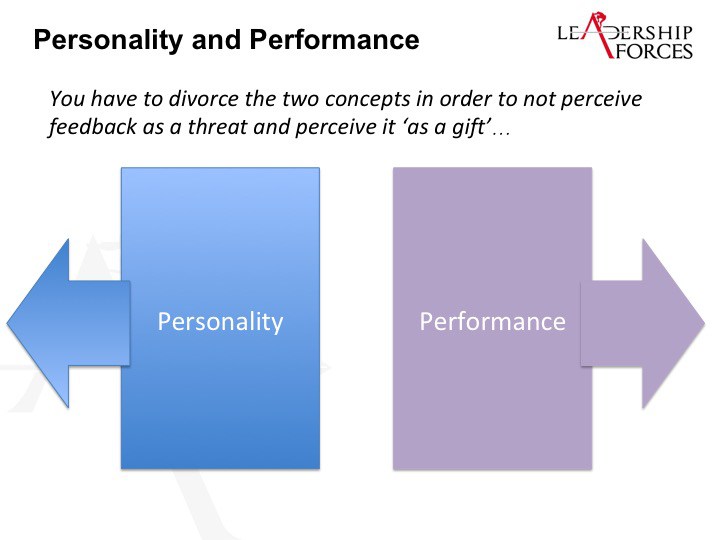 This isn’t easy because you’re breaking a mental model that has led you to be successful.
This isn’t easy because you’re breaking a mental model that has led you to be successful.
The trouble is that this model will only take you so far, in order to move forward you need the perspective of other people to improve.
Practical Guidance
First, actively seek feedback on your performance. Speak to people whose opinion you value and ask them for ways in which you can improve. Push them to give you some points that will make you better. They might be uncomfortable about this because they don’t want to offend you… it’s because they share the same mental model relating to feedback.
Get into the habit of doing this. The more you do it, the easier it becomes.
As you are receiving the feedback, remind yourself that it is about your performance not you as an individual. You can have a bad day at work, you can drop the ball and miss a deadline. But ask yourself the following questions:
- Will my family still love me?
- Will my friends still like me?
- Will I remember this in 12 months’ time?
The answer to the first two is likely to be yes with the answer to the final one likely to be a no.
The reason is that the first two relate to your character, your personality and who you are. This doesn’t change regardless of your performance, the two are separate.
The final question is designed to give you some perspective – the answer is likely to be ‘no’.
Hurt vs Harm
We are not very good at distinguishing between what hurts us but helps us grow, and what harms us.
Feedback and challenge can be painful but it helps us to grow. Exercise is the same, it can be painful but its beneficial in the long-run. Avoiding either of them because they hurt will severely limit you.
Other things ‘harm us’ but might feel good. Sugar is an obvious example. The chocolate might taste great but it doesn’t do you a lot of good in the long-term!
Gossiping about people behind their back can feel good. It feels good to judge others because it makes us feel better about ourselves and it reinforces this flawed idea that we have all the answers. This is one of the reason that the X Factor and the The Voice are so popular – it creates an opportunity for us to judge people. We enjoy it.
But we don’t like being judged in turn. And the person who gossips to you about others, probably gossips about you. Deep down, you know that. Gossiping harms the relationship, but it feels good at the time.
Challenge and Feedback remind us that there is a perspective of the world that we do not see. This is painful because it’s a reminder that we haven’t got everything figured out. The world is too complex to be neatly understood based on your limited experience. Jordan Peterson uses the excellent ‘clearing in a forest metaphor’ to explain the knowledge paradox (The Jordan Peterson Podcast. Episode 13, 48mins)
The Knowledge Paradox
Imagine, two people stood in a clearing in a forest. The clearing represents what you know and understand. The dark forest is scary because it represents ‘what you don’t know’.
One person is content in their understanding of the world. They’re not interested in other people’s views. They don’t learn or seek to challenge themselves. Think Donald Trump who famously claims to have never read a book. They have a small clearing.
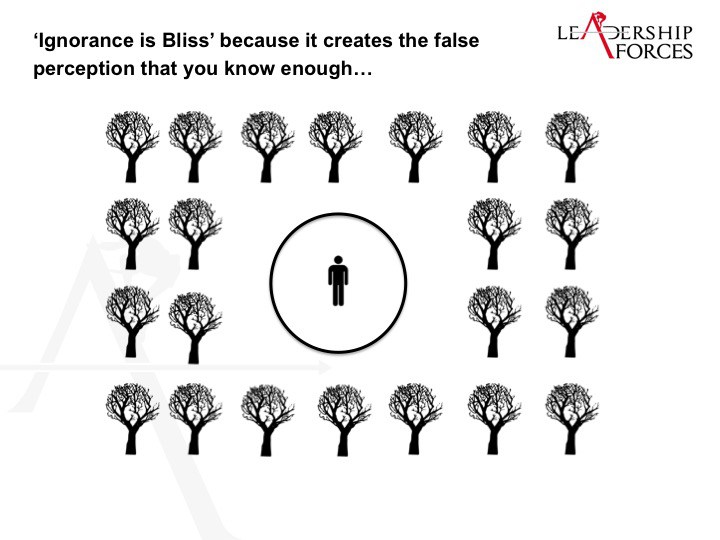
This is what ignorance looks like and it explains why the people that know the least are most confident about what they know.
They have a very limited understanding of the world and seek evidence that reinforces that position. This is called confirmation bias and it is why it is so important to talk to people who see the world differently from you.
This is why diversity of thought is so valuable.
Another person is stood in a much larger clearing in the forest.
They have metaphorically been hacking down trees, reading, seeking feedback and learning about the world. They’ve expanded their understanding of the world and come to the realisation that it’s too complex to fully grasp. They grasped ‘the knowledge paradox’ realising that the more they learn, the more they realise how little they know.
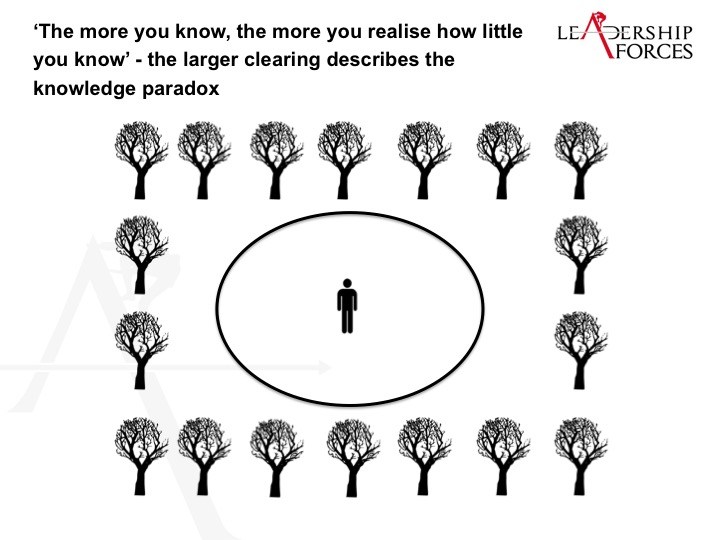
But this is why learning is so important.
This is why feedback and challenge are so important.
This is why understanding the difference between what hurts you and harms you is so important.
What you have to decide is which person you want to be.
The one in the small clearing, or the one in the big one.
Article by channel:
Everything you need to know about Digital Transformation
The best articles, news and events direct to your inbox
Read more articles tagged: Featured, Leadership







